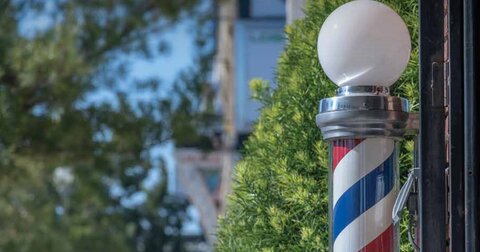Michigan’s occupational licensing regime: not the best, not the worst
State ranking remains at 30 in report on requirements governments impose on job-seekers
All states make it more difficult for some people to get a job, and Michigan is only slightly better than the national average, despite some reforms of recent years.
The Institute for Justice, a nonprofit based in Washington, D.C., looked at the occupational licensing requirements of the 50 states, Puerto Rico and the District of Columbia, ranking each jurisdiction.
It ranked Michigan 30 out of 50 states, the same spot it assigned in the last edition of the report, published in 2017. Since the No. 1 spot goes to the worst state, a ranking of 30 means Michigan was better than the average state. But not by much.
An occupational license is a kind of permission slip someone must obtain from a government office to work in certain jobs. The worker who wants to secure a license must undergo a certain number of hours in training or education, with the curriculum usually laid out in an official document. The worker usually must pay a fee as well.
The Institute for Justice uses two measurements to rank states and the burdens they place on the workforce. One measurement is the number of occupations a state regulates. The report looks at 102 occupations that at least one state regulates, with some state regulating more occupations than others.
A second measurement looks at the burden a state’s licensing requirements put on workers. It measures this burden by looking at the average fee for a license and the average number of days someone must spend to satisfying the training requirements for a license.
In Michigan, 47% of the surveyed occupations were subject to a requirement, slightly lower than the national average of 53%. The amount of time needed to meet a requirement was less than the national average (308 days versus 350 days). Michigan’s average fee for an occupational license was slightly less than the national average ($281 versus $284).
Occupational licensing is common, according to the report, with roughly 25% of all workers needing a license. That’s up from 5% in the 1950s.
Michigan’s lawmakers should overhaul the state’s licensing system, a May 2022 report from the Mackinac Center for Public Policy concluded. Lawmakers should, among other things, establish a process to review licensing requirements on a regular basis.
Michigan has already taken several steps to improve its licensing system, such as forbidding local governments from adding to state requirements.
Jarrett Skorup, who has written about occupational licensing for the Mackinac Center, has long called for reform.
“There are a lot of occupations the state of Michigan requires a license for where it shouldn’t – most states don’t require animal control officers, taxidermists and cabinet makers to get a state license, like we do, for instance,” Skorup said.
“It makes no sense that hair stylists and barbers need to do as many college or training hours as lawyers. Or that door installers in Michigan have more state-mandated hours than pilots. Lawmakers should do an independent, comprehensive evaluation of Michigan’s occupational licenses to ensure people can work quickly and safely.”
Michigan Capitol Confidential is the news source produced by the Mackinac Center for Public Policy. Michigan Capitol Confidential reports with a free-market news perspective.


 Mackinac Center calls on lawmakers to ease licensing barriers for people with criminal records
Mackinac Center calls on lawmakers to ease licensing barriers for people with criminal records
 Bill would cut required training hours for barbers
Bill would cut required training hours for barbers
 Michigan bill demands 750 training hours for estheticians
Michigan bill demands 750 training hours for estheticians